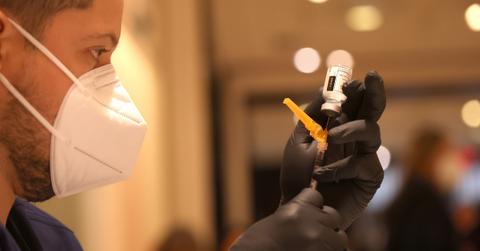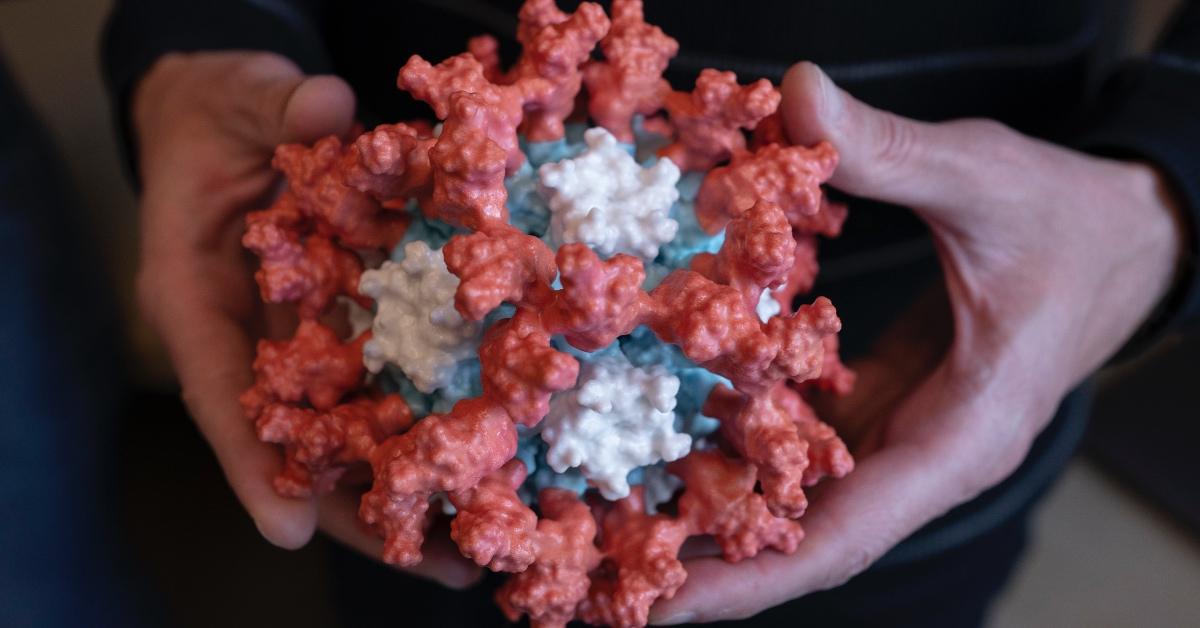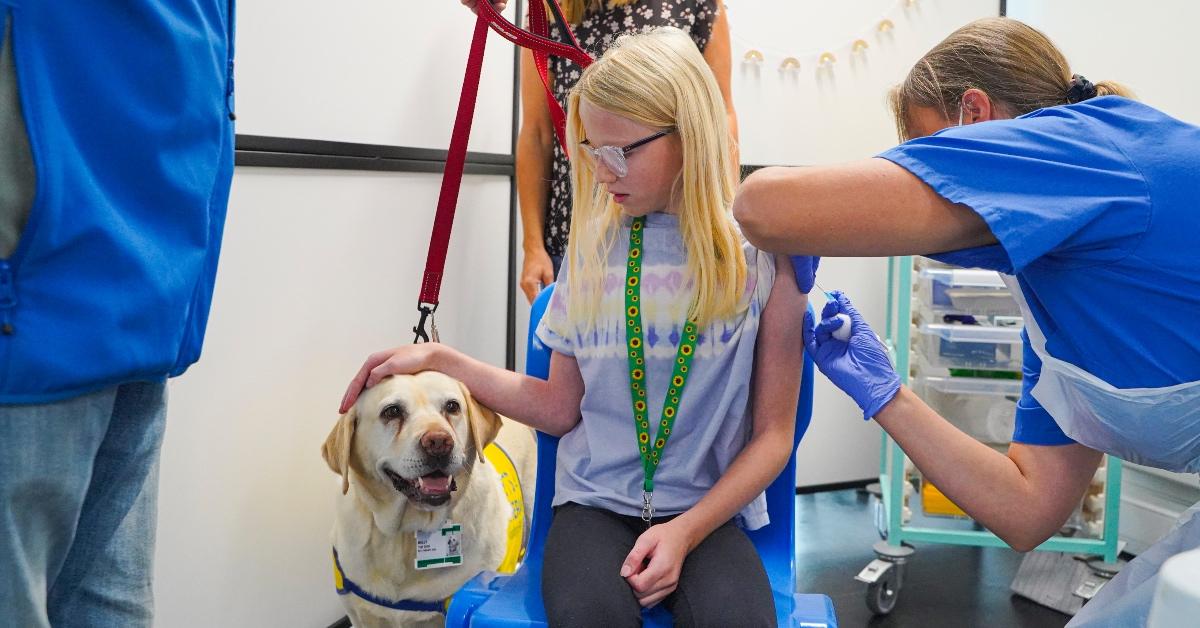FDA Approves Omicron Booster Shot — When Will It Be Available?
On August 31, 2022, the FDA cleared both Moderna and Pfizer-BioNTech to issue bivalent formulations of their COVID-19 vaccines for use as an omicron booster shot.
Aug. 31 2022, Published 10:34 p.m. ET

While it's hard to believe that news of COVID-19 vaccines and booster shots are still trending topics, sadly, we have yet to emerge from a pandemic that has had long-lasting effects on our health and the U.S. economy. The latest news stems from an update provided on behalf of the FDA, which announced that it had authorized the use of a booster shot for the omicron variant of the COVID-19 virus.
On Aug. 31, the FDA reported that it had cleared both Moderna and Pfizer-BioNTech to issue bivalent formulations of their COVID-19 vaccines for use as a booster dose. So, when can we expect the omicron booster shots to be available?
Bivalent COVID-19 vaccines aim to provide better protection against the omicron variant of the COVID-19 virus.

The U.S. has certainly made progress in terms of how it has combated the COVID-19 virus and all of the variants it has thrown our way. However, there are two subvariants of the omicron variant, BA.4 and BA.5, that have become dominant strains. They're responsible for a large percentage of recorded cases today.
With the fall and winter months quickly approaching, the FDA is preparing for the potential spike in cases by authorizing both COVID vaccine makers to issue omicron booster shots.
The FDA says that the bivalent booster shots contain two messenger RNA components of the SARS-CoV-2 virus. The first is the original strain of SARS-CoV-2 while the other is “in common between the BA.4 and BA.5 lineages of the omicron variant of SARS-CoV-2.”
Individuals aged 12 and older may be eligible to receive a single dose of the omicron booster shot.

You're eligible to receive a single dose of the omicron booster shot if you received the most recent booster dose that was also an authorized or approved monovalent COVID-19 vaccine.
Those who would like to receive the Pfizer-BioNTech omicron booster shot are also subject to the same eligibility requirements laid out for the Moderna booster except they must be at least 12 years of age or older.
Aside from meeting specific age requirements and being fully vaccinated against the COVID-19 virus, individuals must wait at least two months since they completed their primary vaccination or received their booster to be eligible for an omicron booster shot.
Healthcare providers will likely begin administering Omicron booster shots soon.
In its latest press release, the FDA also announced that it had revised the Emergency Use Authorization (EUA) of the Moderna and Pfizer-BioNTech COVID-19 vaccine (monovalent) to no longer include it as the primary booster shot. Instead, the FDA says the current booster shot will be replaced with the omicron booster shot for those who are eligible to receive it.
Therefore, it's safe to assume that the updated booster shot will be made available sooner than later. As for those who aren’t eligible to receive the omicron booster, they’ll still be able to receive a single booster dose of the Pfizer-BioNTech COVID-19 vaccine as long as they are between the ages of 5 and 11 and have completed a primary series of the same vaccine.
Will the omicron COVID booster shot carry any side effects?
According to Peter Marks, M.D., Ph.D., who is the director of the FDA’s Center for Biologics Evaluation and Research, the agency has “worked closely with the vaccine manufacturers to ensure the development of these updated boosters was done safely and efficiently.” Still, the omicron booster shots can potentially cause some side effects, according to the FDA.
Based on the clinical trials that were performed, which involved a group of about 800 individuals who were aged 18 and older, fully vaccinated, and double boosted, these were the most commonly reported side effects:
- Redness and swelling at the injection site
- Headache
- Fatigue
- Muscle and joint pain
- Chills
- Nausea/vomiting
- Fever
- Swollen lymph nodes on the same side where the shot was administered
